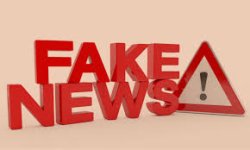The Thin Line Between Truth and Tyranny: Are “Fake News” Laws Silencing Free Speech?
In an age where misinformation spreads like wildfire, governments worldwide are rushing to implement laws aimed at curbing “fake news.” At first glance, this seems like a responsible and even necessary step. After all, fake news can incite violence, influence elections, and erode public trust. But beneath the noble facade lies a chilling question: Are these laws protecting the truth—or silencing dissent?
The term "fake news" is dangerously vague. What one person sees as misinformation, another might see as political critique. When governments get to decide what qualifies as "truth," they hold a dangerous tool that can easily be turned against journalists, activists, and ordinary citizens. Authoritarian regimes in countries like Russia, China, and even some democratic nations have already used these laws not to protect public discourse, but to stifle it.
The core issue is this: Who gets to decide what’s fake? In a functioning democracy, that role is meant for a free press and informed public debate—not state-appointed "truth arbiters." The moment a government criminalizes specific narratives or dissenting views under the guise of “fake news,” it undermines the very foundation of free expression.
Consider this: if you fear posting a political opinion online because it might be labeled as fake and penalized, are you really free? The fear of being silenced is just as powerful as being censored. That’s not democracy—that’s digital dictatorship.
Of course, misinformation is a real and pressing problem. But the solution lies in education, media literacy, and platform accountability—not authoritarian oversight. When governments exploit fake news laws to control narratives, they’re not saving society from lies; they’re ensuring no one can challenge their version of the truth.
So yes, fake news is dangerous. But so are laws that pretend to fight it while secretly crushing the right to speak, question, and challenge.
In an age where misinformation spreads like wildfire, governments worldwide are rushing to implement laws aimed at curbing “fake news.” At first glance, this seems like a responsible and even necessary step. After all, fake news can incite violence, influence elections, and erode public trust. But beneath the noble facade lies a chilling question: Are these laws protecting the truth—or silencing dissent?
The term "fake news" is dangerously vague. What one person sees as misinformation, another might see as political critique. When governments get to decide what qualifies as "truth," they hold a dangerous tool that can easily be turned against journalists, activists, and ordinary citizens. Authoritarian regimes in countries like Russia, China, and even some democratic nations have already used these laws not to protect public discourse, but to stifle it.
The core issue is this: Who gets to decide what’s fake? In a functioning democracy, that role is meant for a free press and informed public debate—not state-appointed "truth arbiters." The moment a government criminalizes specific narratives or dissenting views under the guise of “fake news,” it undermines the very foundation of free expression.
Consider this: if you fear posting a political opinion online because it might be labeled as fake and penalized, are you really free? The fear of being silenced is just as powerful as being censored. That’s not democracy—that’s digital dictatorship.
Of course, misinformation is a real and pressing problem. But the solution lies in education, media literacy, and platform accountability—not authoritarian oversight. When governments exploit fake news laws to control narratives, they’re not saving society from lies; they’re ensuring no one can challenge their version of the truth.
So yes, fake news is dangerous. But so are laws that pretend to fight it while secretly crushing the right to speak, question, and challenge.

